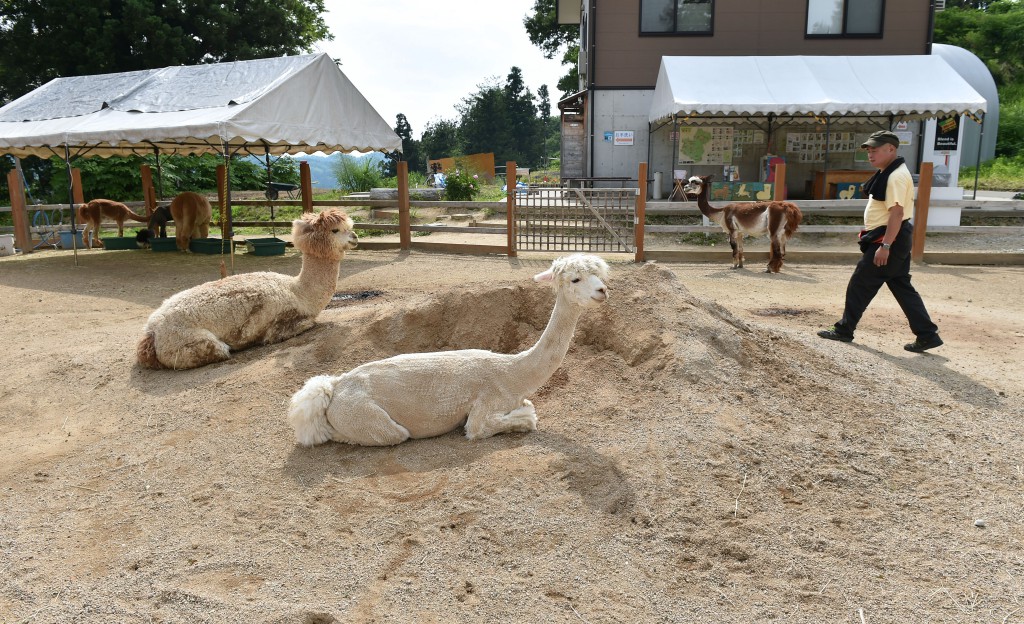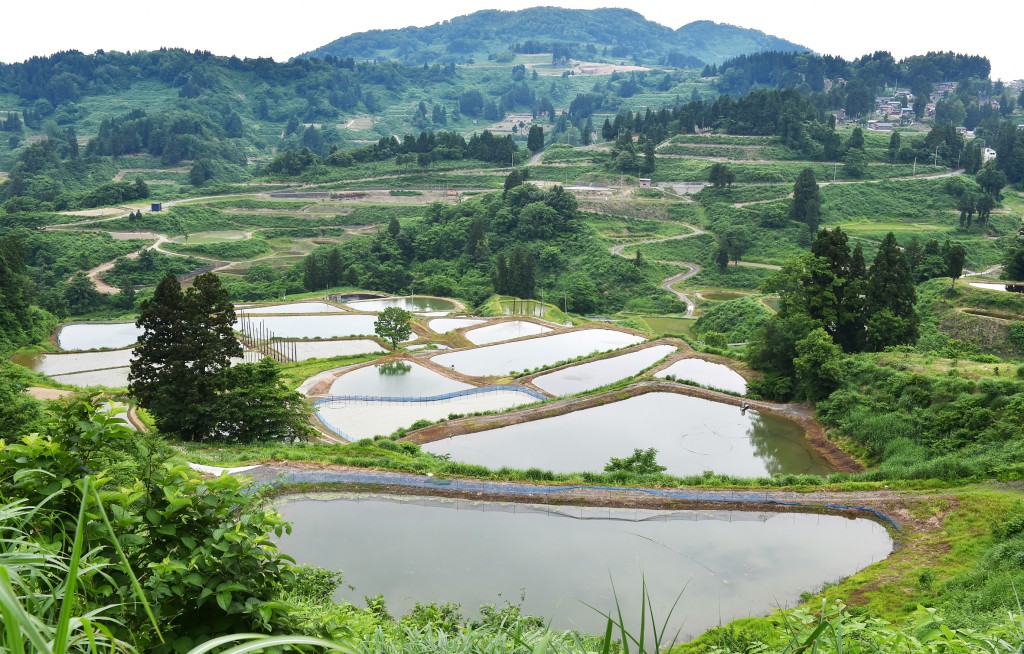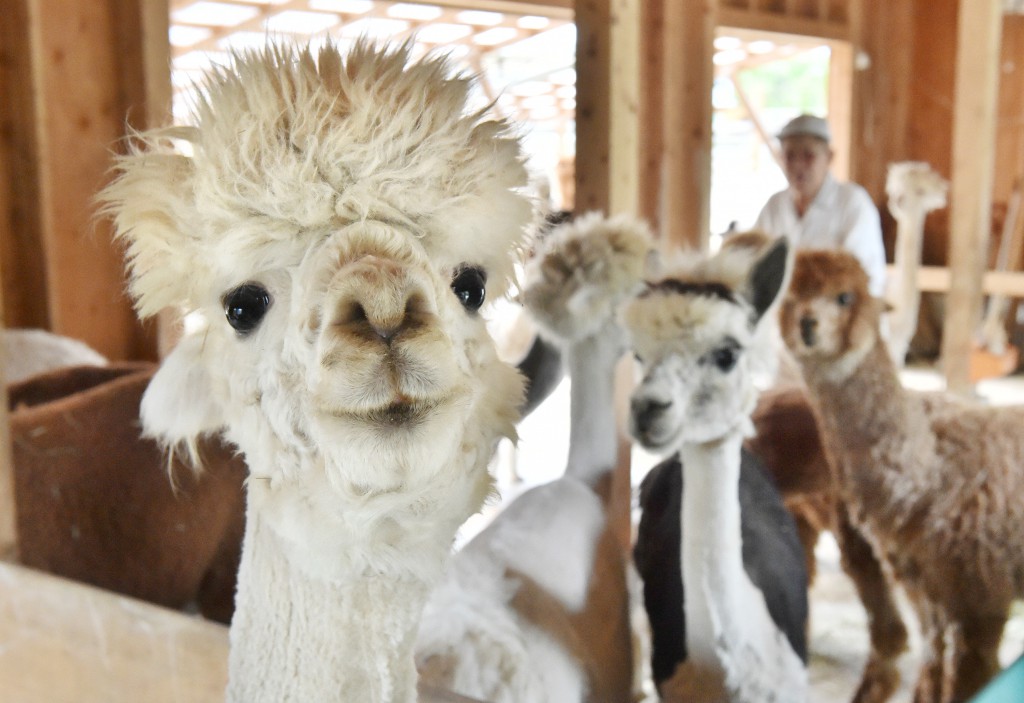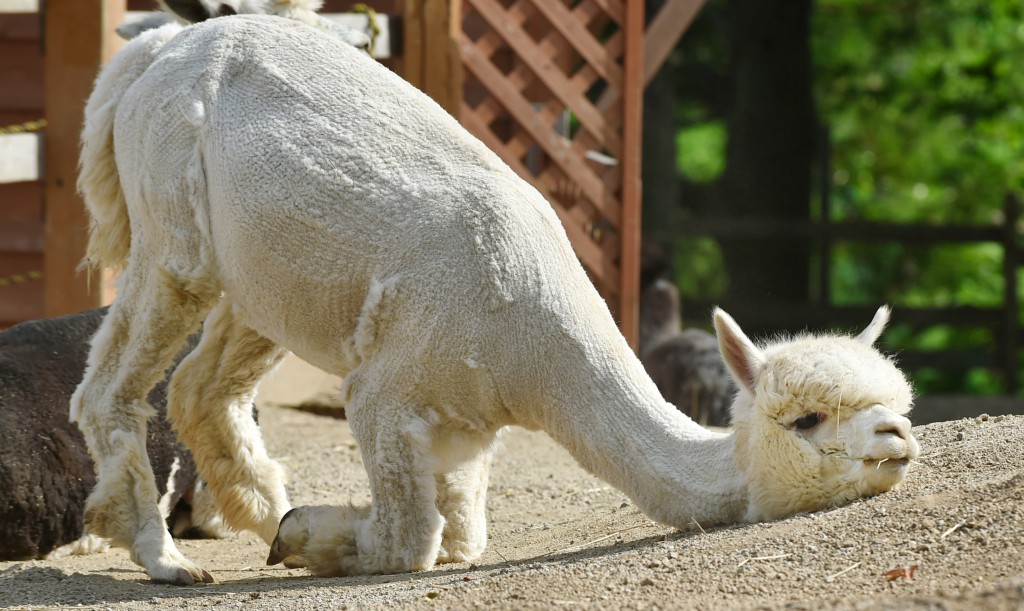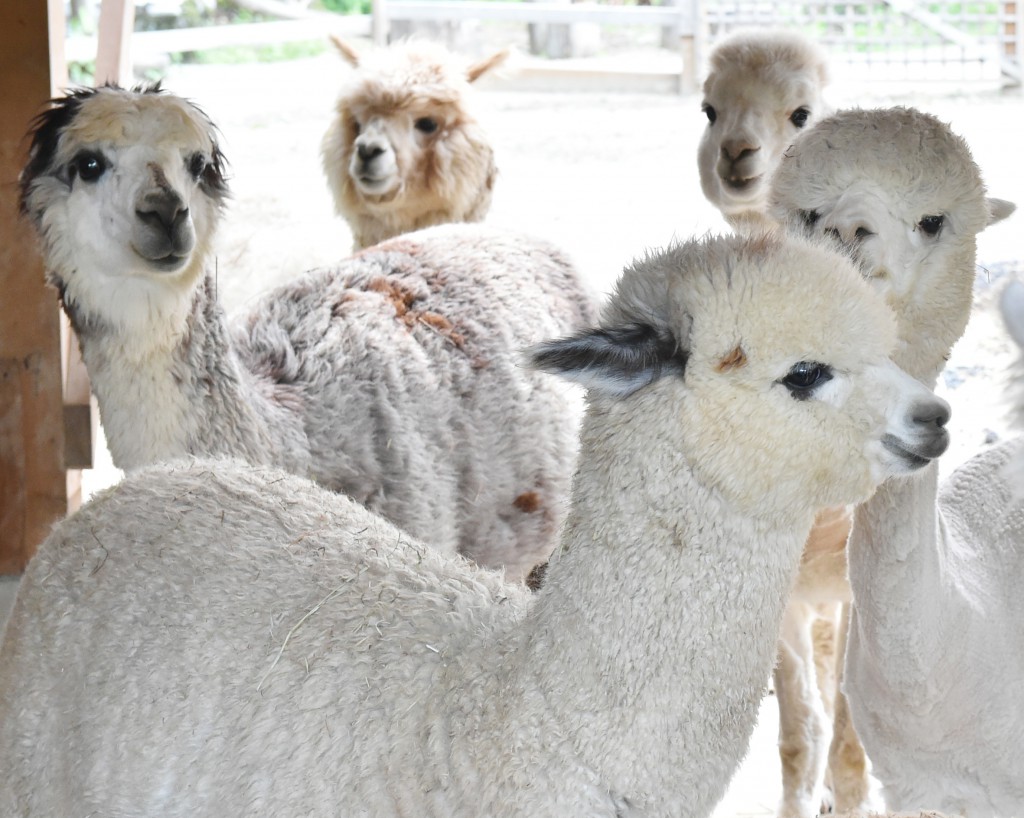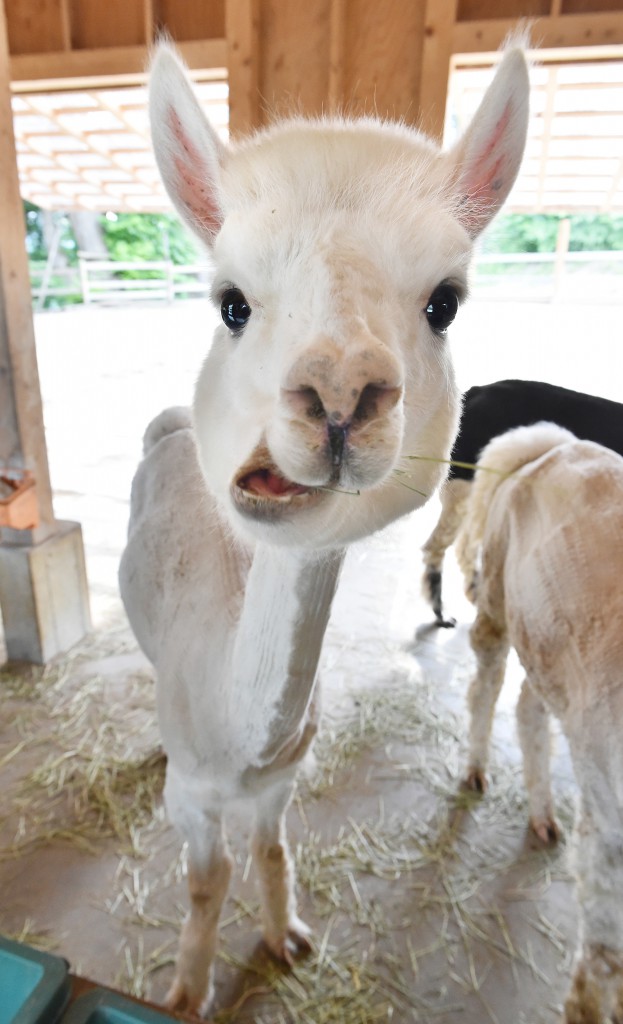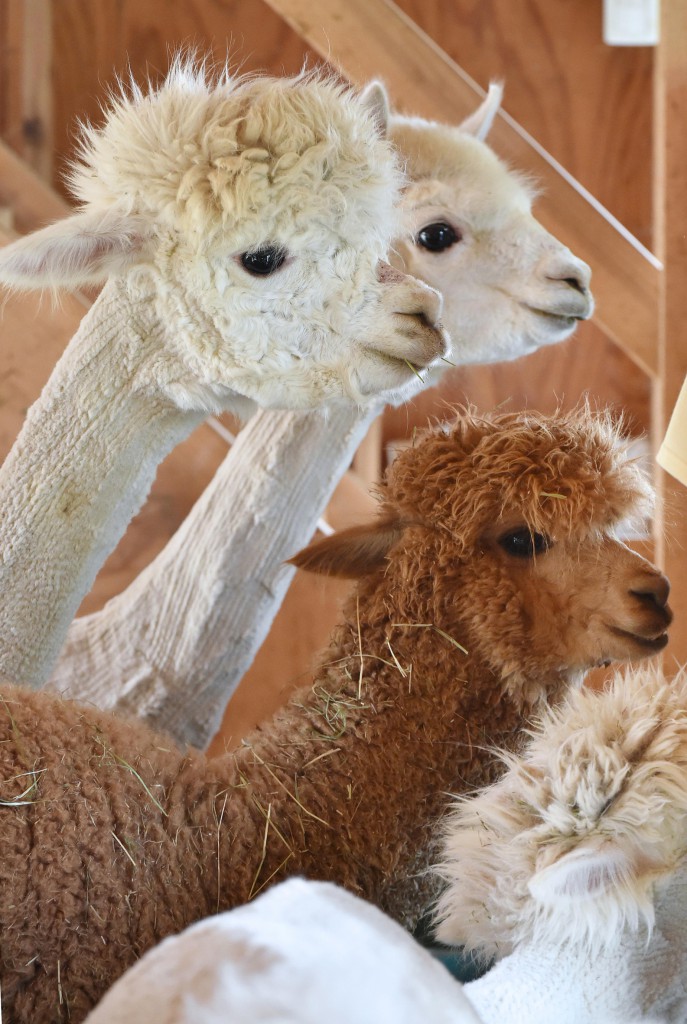
There are black, white, brown and gray alpacas. They look fluffy before shearing. (in Yamakoshi, Nagaoka-shi, Niigata Prefecture)
Kotaro Yamada
– Yamakoshi Alpaca Village (Nagaoka-shi, Niigata Prefecture) –
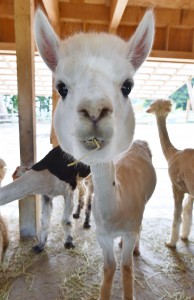 Want to meet this fluffy sweet animal with a long neck? Then, come and join the crowd of tourists at Yamakoshi Alpaca Village in Yamakoshi, Nagaoka-shi, Niigata Prefecture, where you can actually enjoy feeding and touching them in the beautiful natural environment.
Want to meet this fluffy sweet animal with a long neck? Then, come and join the crowd of tourists at Yamakoshi Alpaca Village in Yamakoshi, Nagaoka-shi, Niigata Prefecture, where you can actually enjoy feeding and touching them in the beautiful natural environment.
Yamakoshi Alpaca Village is managed by a union established by local residents. It has two separate farms, one in Yubu for around 20 female alpacas and another in Tanesuhara for around 10 male alpacas. These farms are open to public for free for three seasons from spring through autumn.
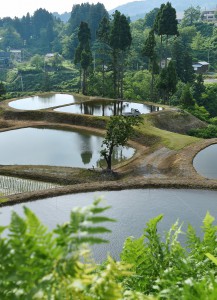 Alpacas, classified as camelids, eat grass and concentrated foodstuff like cows. They are about 170 centimeters tall and weight about 60 kilograms. So even female or aged farmers can take care of them.
Alpacas, classified as camelids, eat grass and concentrated foodstuff like cows. They are about 170 centimeters tall and weight about 60 kilograms. So even female or aged farmers can take care of them.
But there is a problem when it comes to keeping them in Japan. Back in their home countries in South America, alpacas live in cool high plateaus at an altitude of over 3,000 meters above sea level. A representative of the village, Masaru Aoki, 65, said, “It’s hard for them to live in the hot and humid summer of Japan.” So their fur has to be sheared in late June every year to help keep them cool in summer. In winter, they are kept in the cow houses and protected from the heavy snow that can be three meters deep.
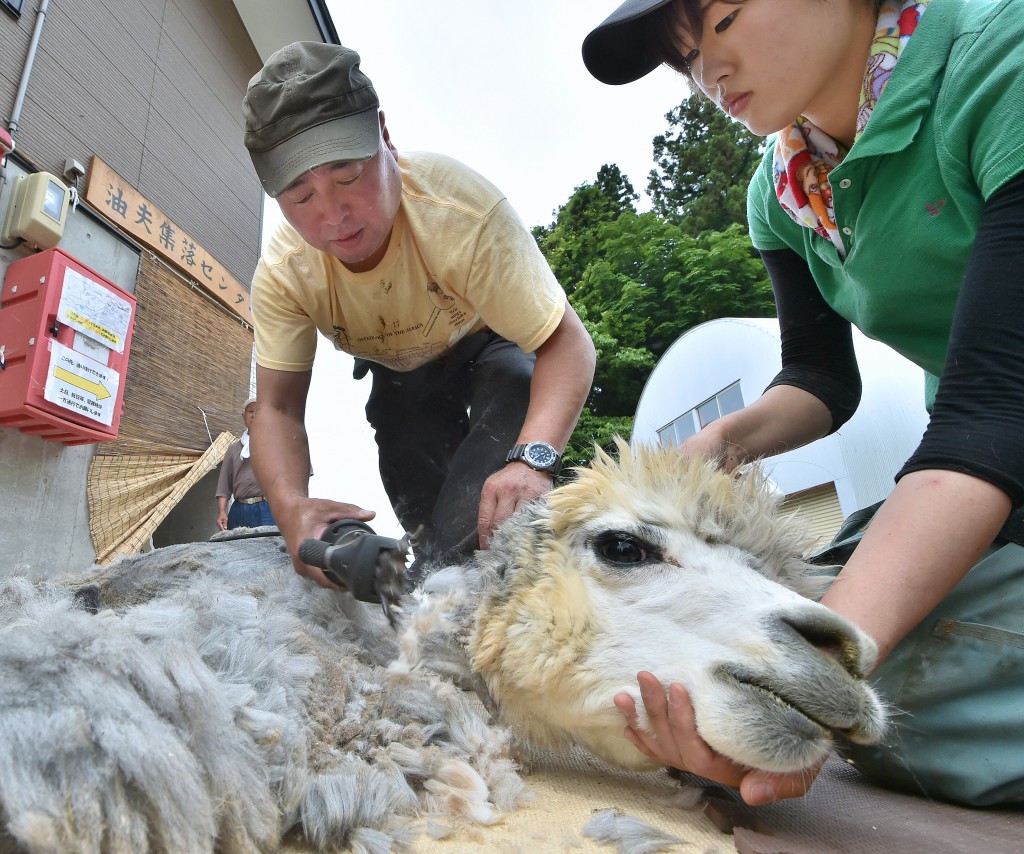
Alpaca receiving annual shearing before summer to survive hot and humid summer days in Japan. One alpaca produces more than 3 kilograms of wool.
On October 23, 2004, the Niigata Chuetsu Earthquake hit the former village of Yamakoshi. The initial earthquake had a magnitude of over 6 and gave devastating damages to the cow houses and stepped rice paddy in the long-established beef-and rice-producing village.
In 2009, a rancher in Colorado, the U.S., sent three alpacas to the village, hoping that they can help encourage the people in the quake-hit village. So local residents formed the union and the alpaca farms in 2011. In order to make the alpaca farms one of the tourist attractions, the union bought and bread some to increase the number.
The alpacas now earn some “fees for their performance” at events in and outside the prefecture as well as rental fees from other farms. The money they earn is used to keep the village on going. The union is also planning to create a new brand of local agricultural products which are produced using composted alpaca manure as natural fertilizer. It also plans to start selling alpaca wool stuff.
“The alpacas perfectly fit in the life in Yamakoshi, the town which had been living with cows. I hope many people to enjoy the close contact with them here in Yamakoshi,” said Aoki.


